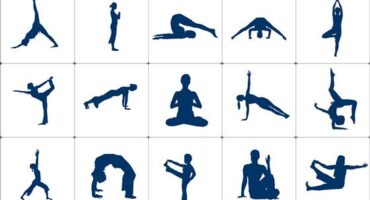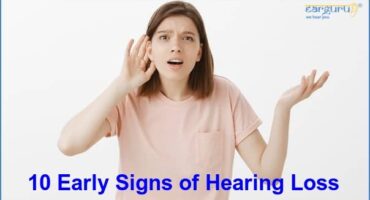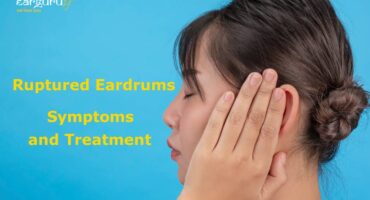Most of us are aware that loud noise or sounds cause discomfort. But how many of us are aware of the effects of noise pollution? One of the serious effects of noise pollution is Hearing Loss. Ear Health is one of the most neglected areas in our understanding of Healthy Living.
We need to understand the harmful effects of noise pollution. Continuous exposure to loud sounds of any type is harmful. It could be due to the work environment or because of listening to music at high volumes. There are very strong chances of the hearing loss becoming permanent.
This type of Hearing Loss is also known as Acquired Hearing Loss. It is important for people working in workshops and construction sites to protect their hearing. Hearing loss due to loud sound is generally a High-frequency Hearing Loss. It is the reduced ability of the ear to hear sharp notes (bells, sharp musical notes). High frequency Hearing Loss is basically a Sensorineural Hearing loss.
We cannot stop the noise around us, but we can certainly take some precautions to protect our ears. Below are some of simple ear health tips.
Earplugs or Ear Protection Devices. A Simple Ear Health Tip
Using Customised or Made to Order Earplugs
Custom made Ear protection devices or EPD’s are available from Hearing Aid manufacturers. These companies have production Laboratories which can make customized (made to order) EPD’s to fit your ears. A technician takes the Ear Impression. This is done by injecting a paste which solidifies after a few minutes. This solid impression is the shape of your ear. The lab oratory technician makes an earplug for the same size and dimensions. The idea is that the earplug should fit precisely in the ear. One can select the attenuation or the level of reduction in noise reaching your ears. Measurement of noise or sound level is in Decibel or dB. Areas like heavy metal workshops, docks, construction sites have higher noise levels. People working in these areas should request for a higher attenuation or higher cut in the noise level.
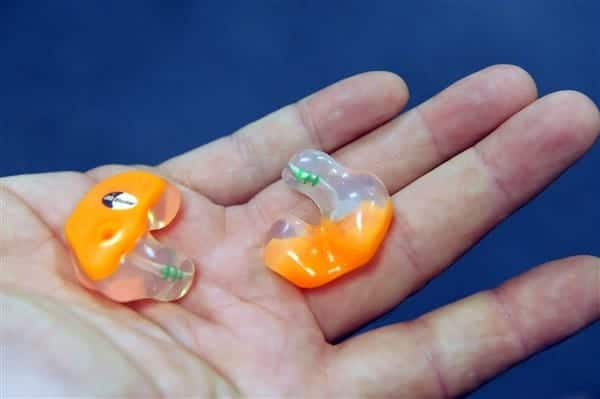
Using Standard Off the Shelf Earplugs
Standard earplugs made from Polyurethane foam are useful if the need is for a single use. They are very reasonably priced and are available at your local chemist or you can also buy them online.
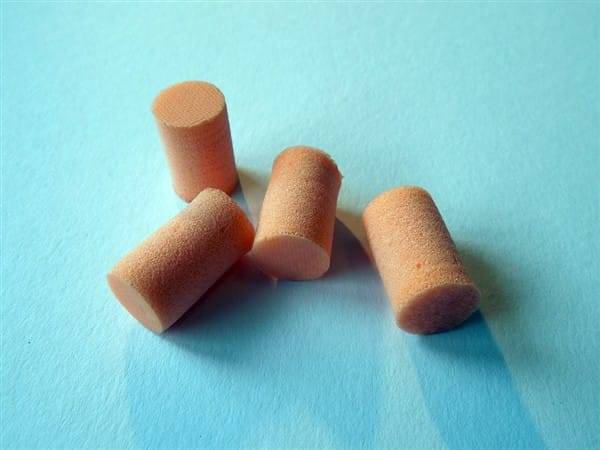
Youngsters should buy these earplugs before they attend a live music concert. Earplugs are a must for a Formula car race as well. The plugs are simple to use. They offer protection without taking away the thrill and excitement of the live performance. Sound levels at Rock concerts are above 120 decibels. Noise level close to the Formula 1 car racing track reaches 140 decibels. Prolonged exposure to sound levels over 85 decibels is dangerous for the ear.
How Loud is Too Loud?
The infographic below will give an idea of the noise levels of everyday items of use and the situations.
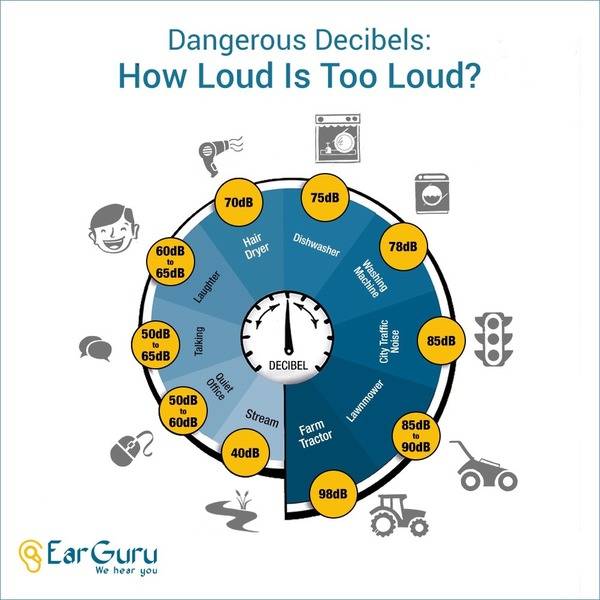
Polyurethane Earplugs material is soft and compressible or made smaller by pressing them. Press them between your fingers and make it into a small ball. Hold it between your fingers and insert it in your ears. Hold it in place for some time, it will slowly expand and try to come to its original shape. By expanding, it will take the shape of your Ear canal. After expanding it forms a blockage and works as a filter to reduce sound going into your ears.
Change in Listening Habits
A few years back Personal music listening devices were very popular. Listening habits have changed. From the early days of Walkman to the current compact iPod or Digital personal music devices. The mobility and the convenience to have a personal playlist added to their popularity. Since these devices were a little expensive they were not accessible to all.
Current Trends in Listening Habits
Mobile phones with built-in radios are very common. This has changed the personal music devices scenario. Besides the radio, the mobile phone has the capacity to save hundreds of your favourite songs. It is a common sight to see people walking around with headphones or ear phones plugged into their ears.
Some More Ear Health Tips to Protect Your Ears
Continuous loud music causes hearing loss. Take precautions and keep the volume reasonably low. One good ear health tip is to keep the volume setting such that it does not completely drown the surrounding sound. Listening to the noise around us while walking or crossing the road is very important. We often read about accidents taking place as people wearing headphones cannot hear the vehicles honking.
Have You Heard of the 60:60 Rule?
If you are a music lover and cannot stay without listening to music, you should follow the 60:60 rule.
The rule is very simple. You should not keep the volume more than 60% of the total available volume. And do not listen to music continuously for more than 60 minutes at a time.
After a 60 minutes listening session turn off your personal music device or music system. Allow your ears to rest, your ears will be happy to rest. Chances are that most of the damage which could have been permanent is somewhat reduced.
Working continuously at your desk or on a particular job is tiring. Don’t you feel good and rejuvenated after taking a short break? Well, your ears will feel the same, you can call it the ear detox period.
It’s a Car Not an Opera Hall
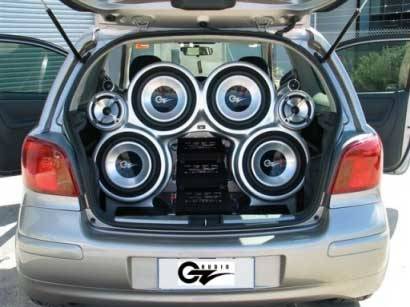
Some people like installing high powered amplifiers and huge speakers in their cars. The boot of the car is totally occupied by the electronics and the large woofers. Woofers are speakers which produce low-frequency thumping sound. The power is much more than required for listening in a small closed space like a car. Loud music in a small closed space is dangerous and can damage your hearing. The high powered stereo system is not advisable for a car. Use earplugs to reduce the damage if you are travelling with others and cannot escape the situation.
Detox Your Ears. An Important Ear Health Tip
If you and your body need a holiday, then why not your ears? You should give a break to your ears after attending a rock concert, a car race or a party with loud music.
It is highly recommended that your ears rest for 12 hours after you attend a 2 to 3 hour session of loud music. Make it a point not to listen to any loud music or expose your ears to loud sounds for 12 hours. This will help your ears to recover and reverse some damage caused by the loud music. The recovery period depends on the loudness and the duration of the exposure.
Temporary Threshold Shift
Continuous listening to loud sounds or music causes Auditory Fatigue. Due to exposure to loud sounds, the muscles in the ear become stiff. The stiffening is our body’s natural reaction to prevent damage to the ears. We experience difficulty in hearing at normal volumes immediately after exposure to loud sound. Our hearing threshold or level changes. This is the Temporary Threshold Shift.
This state is temporary. After some time our ears recover and the threshold becomes normal. If the exposure to sound is very loud or for a long duration, it results in Permanent Threshold shift. This causes permanent hearing loss.
Maintaining good Ear Health is very important as Hearing is one of the five important senses.
We readily spend money on medicines and search the internet for information to undo the damage. Which at times is a little too late and maybe irreversible. Why not pay attention to small things and prevent the Hearing Loss becoming permanent. Most of the simple ear health tips mentioned above will go a long way in improving and preserving your Hearing Health.
